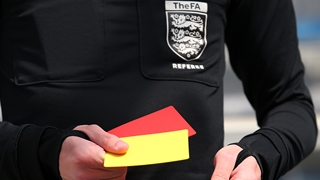
If in doubt, sit them out – the simple but memorable message that sits at the heart of a new e-learning concussion module developed by The FA.
Based on The FA’s official concussion guidelines this free short course takes between 20-30 minutes to complete and equips learners with the know-how to recognise and manage a concussion from the time of injury through to a player's safe return to football.
- Visit https://learning.thefa.com
- Sign in using your FAN / Register for a FAN
- Click on 'Find Awards' and select 'Concussion'
- Please note: You may need to disable your pop-up blocker to allow the module to open
Dr Charlotte Cowie, The FA’s head of medicine, said: “This e-learning module has been developed as an extension of The FA’s concussion guidelines, which were launched in November 2015, to enhance the way we support participants wanting to learn more about what to do when confronted with a potential concussion..
“Ultimately, our aim is to prevent a really serious injury that could have been avoided with better care or information.”
One of the module’s key features is that it’s not aimed at one sole participant group within the game.
Rather than it being just for coaches, or just for referees, it’s open to anyone at any level of football with an interest in improving their knowledge about concussion, as Dr Cowie goes on to explain.
“This module has been developed using language that can be understood without the need for medical training. It’s for anyone to look at, test themselves and try out," Cowie added.
“The ideal management of concussion needs not just medics to understand how concussion should be managed, but players, coaching staff, teachers, parents and referees as well."
Now the module is live, Dr Cowie is keen to see it benefit participants and the game as a whole in two key areas.
“I hope that anyone who takes this course will finish it feeling confident that they can make the right decisions at that critical point when a serious injury could be prevented," she added.
“I also hope that it will change people's attitudes to concussion, so that players will not feel pressured to continue playing after a suspected concussion, that doctors will not feel pressured to keep players with suspected concussion on the pitch and that all those around a concussed player will be supportive and alert to the risks.
“If we succeed, we will look back in a few years’ time and find it hard to believe that the 'If in doubt, sit them out' message did not exist.”








